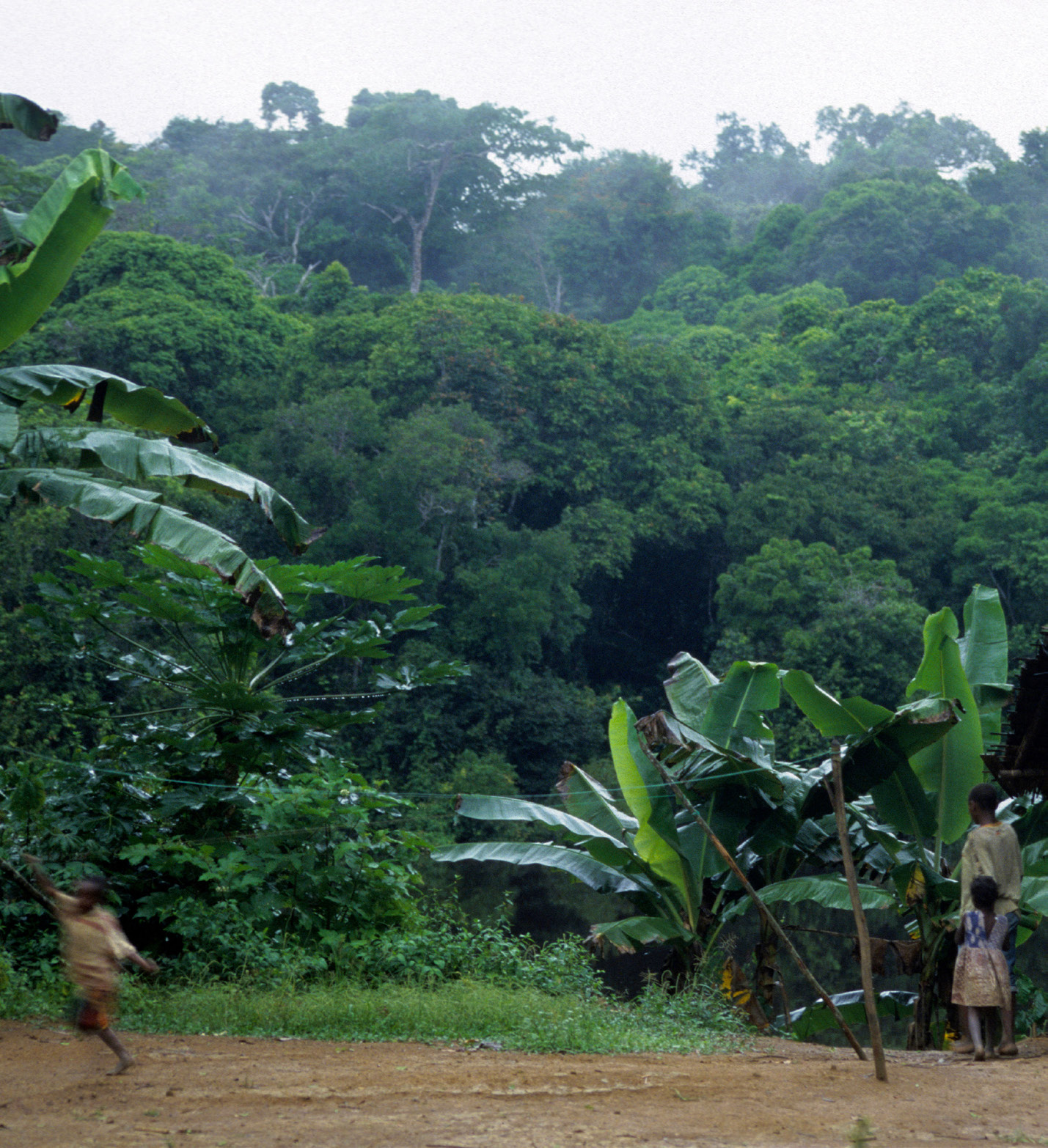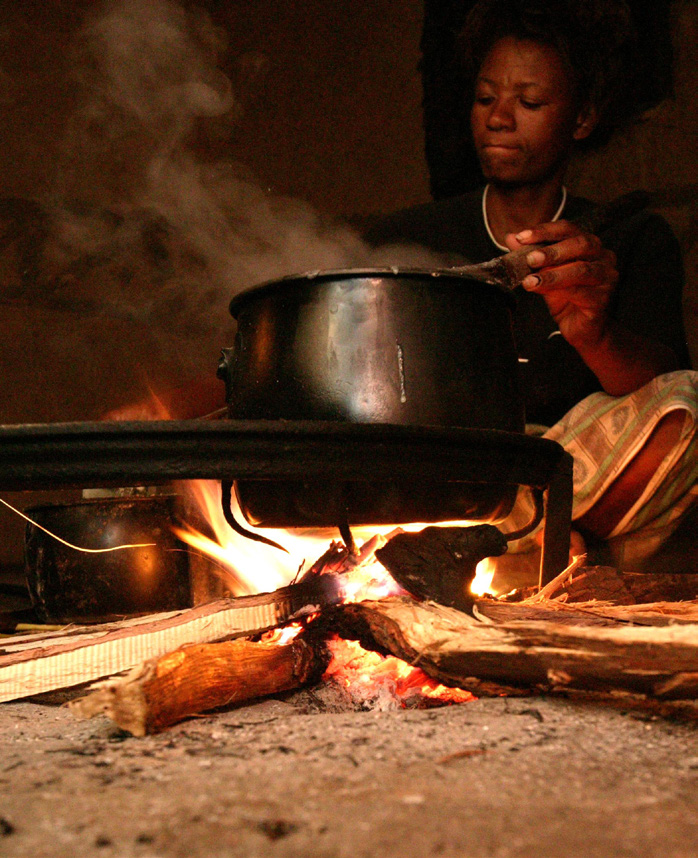
You might associate energy poverty with British households who can’t afford to heat their homes. But it is also one of the biggest contributors to the loss of rainforest in the Congo.
That’s because 95% of the Democratic Republic of Congo’s energy comes from burning wood or charcoal. Each year the average household in DRC will get through 1.6 tonnes of fuel wood, mainly for cooking. No part of the forest is safe and even national parks are degraded by the constant need for fuel.

In Cool Earth‘s Lubutu partnership, demand for fuel wood is the number one threat to forest. Cooking on open fires is also a major health hazard. Household air pollution from cooking fires kills more children every year than AIDS or malaria combined¹.
With your support, the villages in Lubutu are testing three alternatives to traditional stoves and three-stone fires. These are wood gasifiers that burn much more efficiently, solar ovens that concentrate sunlight and produce heat, and a more efficiently designed mud stove. Less wood, or none at all, is needed for each of these stoves, but that’s not the only deciding factor. The stove selected to roll out to the next stage of the project will need to be practical, easy to use and maintain, affordable, and suitable for traditional cooking methods.
As well as lifting people out of energy poverty, this project will deliver wider social and environmental benefits.
Less wood burnt indoors means fewer emissions from wood smoke. Emissions are usually created during cooking and a reduction will improve the respiratory health of the community, particularly for women and children, the people most affected

¹ Practical Action 2004. “Smoke: the killer in the kitchen”











